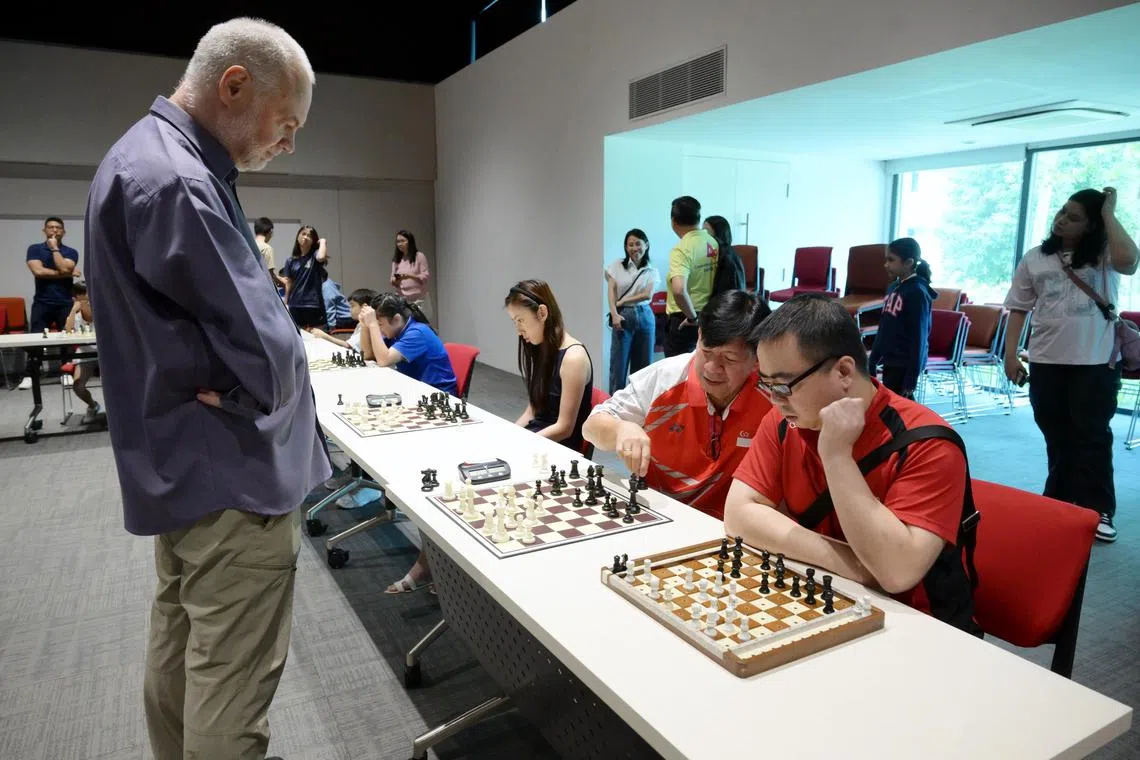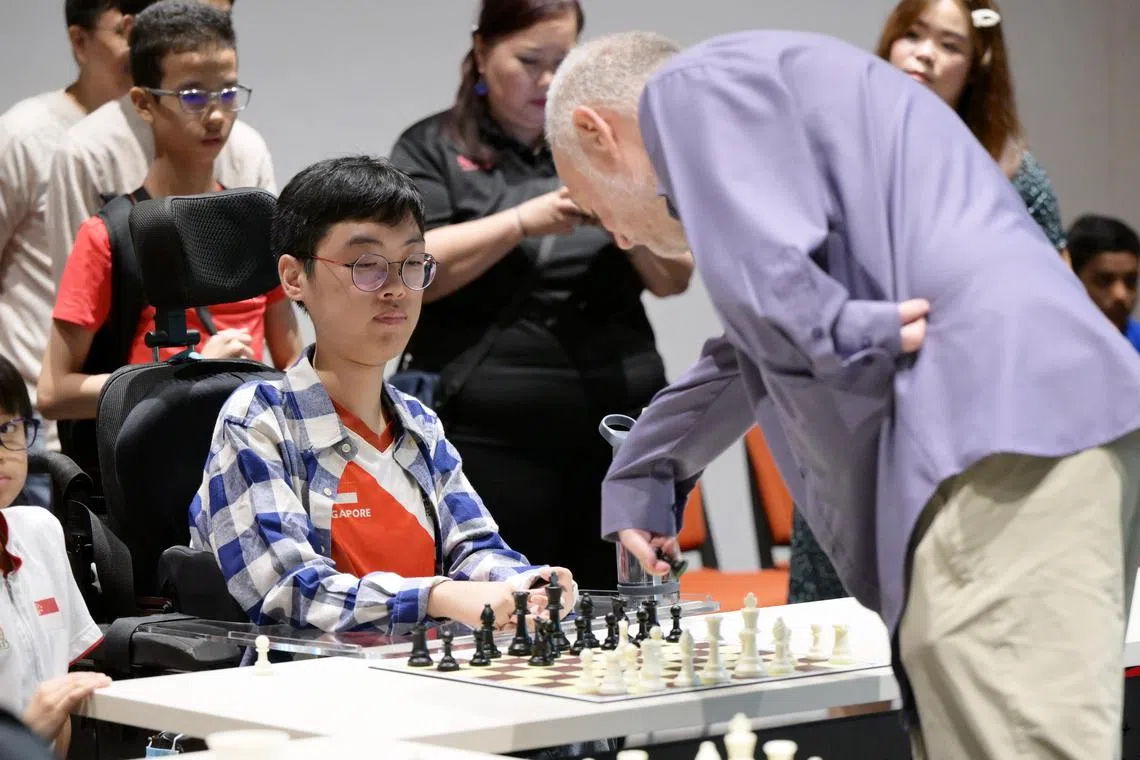Disability doesn’t stop Thomas Luther from becoming a chess grandmaster
Sign up now: Get the biggest sports news in your inbox

Chess grandmaster Thomas Luther (left) sparring with Edwin Tan, who has retinitis pigmentosa and is assisted by his coach Louie Polistico (centre). Tan uses a braille chessboard.
ST PHOTO: NG SOR LUAN
SINGAPORE – Growing up in the 1970s in Germany was tough for chess grandmaster Thomas Luther.
The 55-year-old was born with dysmelia, a condition that left him with under-developed arms.
But chess provided a level playing field, giving him a route to a fulfilling life. After picking it up as a child, he went on to become a grandmaster at 25 and won three German championship titles and a silver medal with the German national team at the 2000 Chess Olympiad.
Now a training director with the Singapore Chess Federation (SCF) and chairman of the International Chess Federation (Fide) Players with Disabilities Commission, Luther has come a long way.
He said: “I learnt early on to handle (the disability) in my life. So I’m very much independent and this is also a mindset, that having a problem in life, you always call out others to help, or you have the mindset, okay, I’ll fix it.
“Back as a kid, when I learnt chess and I went to the chess club, I saw a different world. Suddenly, there was really equality, I could really play as well as the others, or even be better.
“This was important because in school, things were difficult, dealing with other kids was not easy.”
Luther is unsure where he would have ended up if not for the sport, adding: “There are many cases where people with a disability spend all their life in a care centre...
“This is a sad thing, especially if, when we know that many of these people with a right education could have a job, a career, not being a burden to society, but actually a taxpayer and developing all dreams in life, with family and kids.”
He was speaking at the SCF’s ParaChess showcase on Nov 17 at the Enabling Village in Lengkok Bahru, where he played 10 exhibition games simultaneously against both able-bodied and para-chess players, ahead of the Nov 25-Dec 13 World Chess Championship at Resorts World Sentosa.
One of his opponents was Nathan Chua, who has spinal muscular atrophy. The 21-year-old, who picked chess as a co-curricular activity in secondary school, said: “When I was in primary school, I had very few friends, I was very shy. But I think once you find the sense of community, you find people who are willing to accept you, it really opens you up, and it really boosts your confidence.”

Chess grandmaster Thomas Luther (right) sparring with Nathan Chua. Chua who has spinal muscular atrophy, is assisted by volunteer Lyndon Wee (left) at the Singapore Chess Federation’s ParaChess showcase on Nov 17.
ST PHOTO: NG SOR LUAN
Luther also faced Edwin Tan, who is visually impaired and plays using a braille chessboard. The 30-year-old represented Singapore at the Asean Para Games in 2015, 2017 and 2022.
He said: “The issue for me is to visualise the pieces. I think the challenge is, when I was younger, not everyone wanted to play against me because I was a bit slow.
“People tried to accommodate me, but some of them have constraints, they needed to make some special arrangements. I’m thankful that I can compete because I never thought I could represent the country in any sport.”
SCF chief executive Kevin Goh hopes to bring the sport to a wider community, and is looking to work with the Ministry of Social and Family Development and the Singapore Association of the Visually Handicapped to engage more people with disabilities.
He said: “We are trying to establish a training framework in targeting schools with special needs. We believe that chess is beneficial to everybody, for kids especially.
“I think chess can teach them a certain life skill that can help them to eventually become independent and contribute to society.
“We want to empower people with disabilities in a way that they don’t feel that they require charity. They have self-worth and they are independent.”


